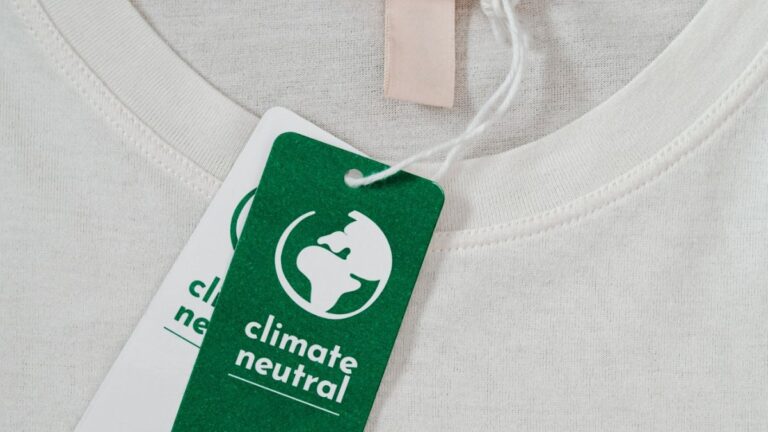Three UK brands have pledged to end their greenwashing practices, but will other European brands follow suit?
advertisement
Three major British fashion brands have signed a pledge to only use “accurate and clear” sustainability claims after being investigated for greenwashing.
Low-cost brands ASOS, Boohoo and George at Asda, all of which have locations of various sizes across Europe, have said they will change the way they show the environmental impact of their clothes.
The move comes after regulators at the Competition and Markets Authority (CMA) investigated the brands for misleading customers with environmentally friendly claims.
How can greenwashing be eradicated in the fashion industry?
After spending around 30,000 hours and £1.3 million (€1.5 million) on its greenwashing investigation since September 2021, the CMA is determined to force companies to reveal the truth behind their practices.
Regulators say brands that continue to promote their products as more environmentally friendly than they are while refusing to provide more information are not only distorting competition but also being unfair to customers.
Many brands, including the three that signed the pledge, have already marketed certain products as “environmentally friendly.”
The CMA said the criteria for inclusion in such a scope must be clearly set and state the minimum requirements to qualify for inclusion – it should not be permissible to describe something as “green” when in fact it is not.
The group launched an investigation into greenwashing at three fashion companies in 2022. No legal action was taken, but instead the companies agreed to a number of voluntary initiatives and would report back to the CMA on their progress.
Brands will now have to clearly state the exact percentage of fibre in their clothing that is recycled or organic, and will also have to avoid using imagery such as green leaf logos that are often used to suggest products are more environmentally friendly than they are.
ASOS told the BBC that the voluntary initiative by the three brands “sets the benchmark” for the industry.
“Sharing clear and accurate information on the sustainability credentials of fashion products is crucial to enable consumers to make informed choices,” they said.
In the same interview, Boohoo said it “has not intentionally misled customers” and Asda insisted it “supports any measures to improve consumer understanding of environmental claims”.
Are these greenwashing pledges enough?
This week the CMA published an open letter to the entire fashion industry urging other companies to review their own environmental claims while ensuring they comply with consumer protection laws.
Going forward, the agency will be less tolerant of breaches of greenwashing rules: new powers soon to be introduced by the Digital Markets, Competition and Consumer Bill will allow it to impose fines of up to 10% of a company’s annual global turnover outside of the courts on companies that don’t comply with its guidelines.
The EU has also banned greenwashing and is taking measures against it.
Earlier in March, the EU Green Claims Directive was passed, meaning that companies in the EU could be fined up to 4% of their global turnover and have their directorships disqualified for greenwashing practices.
Abbie Morris, CEO of AI compliance platform Compare Ethics, told Euronews Green that the UK and European approach was a step in the right direction.
“This is a clear message from the CMA that companies must thoroughly check their green declarations for accuracy and compliance. Failure to do so will lead to concrete penalties that companies will face going forward,” Morris said.
advertisement
“It is essential that companies proactively review their claims now to mitigate the significant risks looming ahead,” she added. “Companies that can operate with a clear focus on environmental and social responsibility are more likely to grow their customer base, increase their long-term profitability, and protect themselves from future trade-impacting regulations.”
Compare Ethics also explains that while the practice is incredibly widespread and concerning, a new attitude could have great benefits.
According to exclusive data published by the platform, if just 1% of greenwashing investigations in the UK, EU and US this year led to fines, the total amount collected could be a staggering €418 million.


